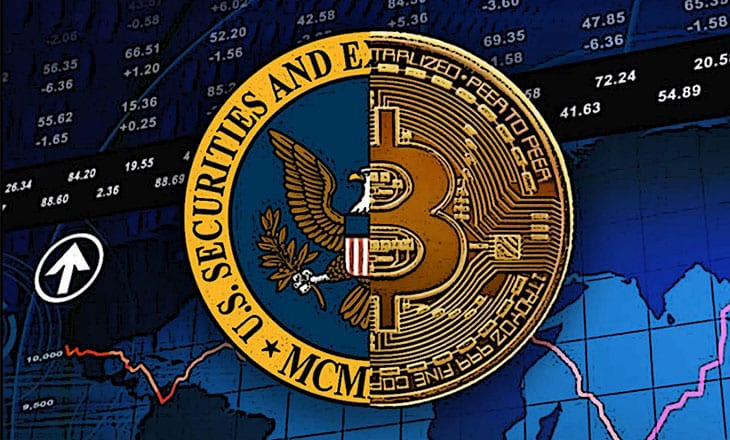If there is one event that would send Bitcoin enthusiasts into absolute delirium, it would have to be the SEC’s approval of a highly anticipated Bitcoin exchange-traded fund (ETF). Jay Clayton, the chairman of the SEC, has never equivocated his position on the possibility of this ETF, even after a dozen or so of failed applications. As the crypto world keeps evolving and other markets become more aggressive in their desire to be market leaders, will the intransigence of the SEC drive billions from the U.S. economy into unknown foreign locales?
Clayton has often expressed that he is “uncomfortable” with all things crypto, even when blockchain technology would appear to be a dream come true from a security and failsafe perspective. The issues, however, revolve around the unregulated network of crypto exchanges, which determine market prices. The shortcomings in this arena are difficult to ignore. Clayton’s concerns are basic:
What I’m concerned about at the moment is if it can be reasonably demonstrated that the underlying trading is generally not manipulated, it’s happening on reliable venues with good rules and that custody is something we can feel comfortable about.
The historical record for crypto exchanges is not stellar. Billions have been lost due to security compromises, although research has revealed that professional hacking gangs at the behest of North Korea may be the major source of the problem. Exchanges, however, have not invested in the latest security protocols or in software that monitors trading action to detect potential cases of price manipulation. Custodial services are also in short supply, but to their credit, the major exchanges in the United States have maintained a reasonably good track record on all fronts. Yet, the SEC still balks.
The powers that be on Wall Street are becoming overly concerned and for good measure. It was only thirty years ago that the concept of an exchange-traded fund hit the market. The first ETF mimicked the S&P 500 index, buying equities in proportion to the index’s demographics. Other indexes followed covering other equity groupings, oil, cotton, gold, and you name it. An explosion occurred over the ensuing decades. By 2014, these ETFs had a market capitalization of $2 trillion.
The concern is that all of this activity and the fees that go with it could also be “déjà vu” all over again with Bitcoin and its other altcoin brethren, if only Jay Clayton and his regulatory buddies would act in the affirmative. Otherwise, they see the vast majority of these activities moving to more acceptable foreign markets. If you look no further than Hong Kong or Malta or wherever the brain trust of Binance currently resides, you have a likely entity that could move forward very quickly in this arena. Binance is the largest and one of the most successful crypto exchanges in the world, and its charismatic CEO, Changpeng Zhao, would be more than happy to teach Wall Street a lesson.
There is an opposing view, however, one that deals more with the notion of self-preservation. Per one report:
Honestly, many in the cryptocurrency community are probably happy for the SEC to drag its feet on legalizing bitcoin ETFs among other crypto investment products so the developers of cryptocurrency exchanges can continue to hog all the business and Wall Street just watches it happen.
Crypto supporters, however, are hanging their hopes on the advent of the Bakkt and ErisX exchanges, designed to be “reliable venues with good rules” and ones that trade in Bitcoin futures that settle in cryptos, rather than cash. Custodial arrangements will not be an issue either. The stage will soon be set to determine if the SEC is finally comfortable enough to give its approval for the first stateside Bitcoin ETF.
